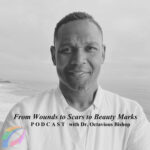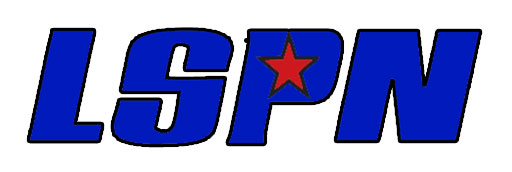
Ep. 4 A Thirty-One Mile Journey
Happy New Year, and welcome to the first “From Wounds to Scars to Beauty Marks” podcast of 2025. My name is Octavious Bishop and I want to thank you for taking the time to listen to this podcast. Every new year allows us to reflect and reposition ourselves to grow and build upon our wins, and yes, our loses from the previous year. Life is a conundrum at times. What seems of the norm, or common to one person, group, or community, is foreign to another. You and I did not choose how we would come into this world. Who our parents would be. What community, or neighborhood would we be raised in? What nation, religion, belief systems, and even the freedoms we would be granted, or denied? See, our brains were hijacked at birth, and during the most critical and sensitive periods of our brain development. We have been fed the perspectives that have been passed down to us for centuries. I am both thankful and saddened about what has been passed down to humanity. On one hand, it is clear to see the magnificence of humans, how we continue to advance, and our adaptability is truly extraordinary. On the other hand, my heart is broken by the blinders we place over our eyes as we watch the suffering of others facing life’s most difficult challenges, and disdain for those who stand on the other side’s beliefs, in many cases we have never come to our conclusions about. See, hypocrisy is a problem for us all. Yes, I am a hypocrite, and I must address this daily, as a husband, a father, a professor, a friend, a sinner, and a man of faith living in a Western nation, proclaiming the name of Jesus, with Eastern perspectives.
My wife and I are currently getting a taste of our own bad-tasting medicine, as we navigate to raise our pre-teen son. You would think, with my wife being a mid-level practitioner, and me a professor, ordained minister, and much of my career serving the needs of and giving guidance to families about their teenager, I would be this outstanding calm communicator with my own almost 13-year-old son. Wrong, I struggle daily trying not to revert back to being a deeply wounded insecure husky, bad-smelling, know-it-all all 13-year-old prepubescent male. Truth is we can all look back at our younger years and cringe at how little we valued the wisdom of our parents, family, and teachers.
As we mature, we begin to understand that seeking wisdom and knowledge is a must for our future. In everyday life, this can translate to actively pursuing education, mentorship, and personal development opportunities that can lead to a strong faith, a purposeful career, and eventually allow us to reach back and bring someone along with us on this life journey. Heeding the advice of those who came before me has saved me from the pain of regret in so many ways. Growing up, and well into my young adult years I knew I wanted to be a husband and a father, but in that order. By no means have I been perfect in my life, but having my three children with one person has been a blessing in my life. There have been many men in my life who have been vulnerable enough to warn me about being undisciplined in character, and I am so grateful these men were open, honest, and willing to share their hearts with me.
Exploring both Knowledge and Wisdom
I will address three areas of significance, hoping to open a window of understanding for both you and me. Many of the topics on this podcast are simply explored through my own lens of character defects I have worked through, and many I am currently working through. As I tell my college students, the goal is to be your colleague one day not just another professor giving you papers, tests, and assignments to complete for a grade. We are doing life together, and I am glad about it.
One of the most impactful lectures I have taught as a psychology professor for the last fourteen years is helping students gain insight into the differences between intuition and discernment. Intuition and discernment are both ways of understanding or knowing, but they differ in their origins and applications. The psychological brain play on these two terms is very important in traveling the rough terrain of gaining both knowledge and wisdom. Before I go any further, it is important to state that the brain is hardwired. This means that the most primitive aspects of our human behavior respond and express themselves involuntarily. I like to explain the mind as a white canvas, and every person has been uniquely created to paint, with different shades of similar colors, as an expression of what’s on one’s mind. Intuition and Discernment are closely related, but one expresses itself from the hardwiring of the brain (intuition) and the other(discernment) is cultivated over time based on experiences, and perspectives, that eventually are expressed through our behaviors. Here are three quick explanations for both intuition and discernment.
- Intuition:
The Nature of intuition is often described as a gut feeling or instinctive understanding. This is biological and very necessary for risk management and safety, but as we all know our gut feelings are never to be ignored, in many cases cannot always be trusted, we are not perfectly wired. Just because a person looks like a threat doe does not mean they are a threat.
The Source of intuition comes from the subconscious processing of experiences and knowledge. It’s more emotional and spontaneous. Two very important systems of our brains impact our minds. The limbic system is responsible for emotional regulation. The second system of our brains has to do with decision-making and can be referred to as the business center of our brains. Intuition is a wonderful response God has blessed us with but must be checked until more experiences have been lived out in our lives to gain more insight, therefore allowing our knowledge to be processed and retained.
The application of intuition is utilized in making quick decisions without extensive reasoning or analysis. Athletes are a great example of how intuition plays out in performance. Their training is rote and repetitive. This allows high-level athletes to perform without overthinking.
- Discernment:
The Nature of discernment involves a more deliberate and thoughtful process of evaluating and understanding.
The Source of discernment can be expressed and explained by the life one is living or has lived. Discernment relies on wisdom, experience, and critical thinking; it can also include spiritual insight. In my personal Christian and faith journey, I have had to work through some misguided understanding of how discernment has been used as a tool of judgment and finding fault, rather than a tool for growth, helping oneself and others to align more closely with truth and righteousness. This understanding can help folks cultivate a more balanced and effective approach to discernment in their spiritual practices.
The Application of discernment is used for making judgments, distinguishing between right and wrong, or assessing complex situations.
Intuition tends to be more instinctual and immediate, while discernment involves careful consideration and evaluation.
Happy New Year and thank you for listening to this podcast. I hope you will revisit and go with me on “A Thirty-One Mile Journey” here on the “From Wounds to Scars to Beauty Marks podcast.”

